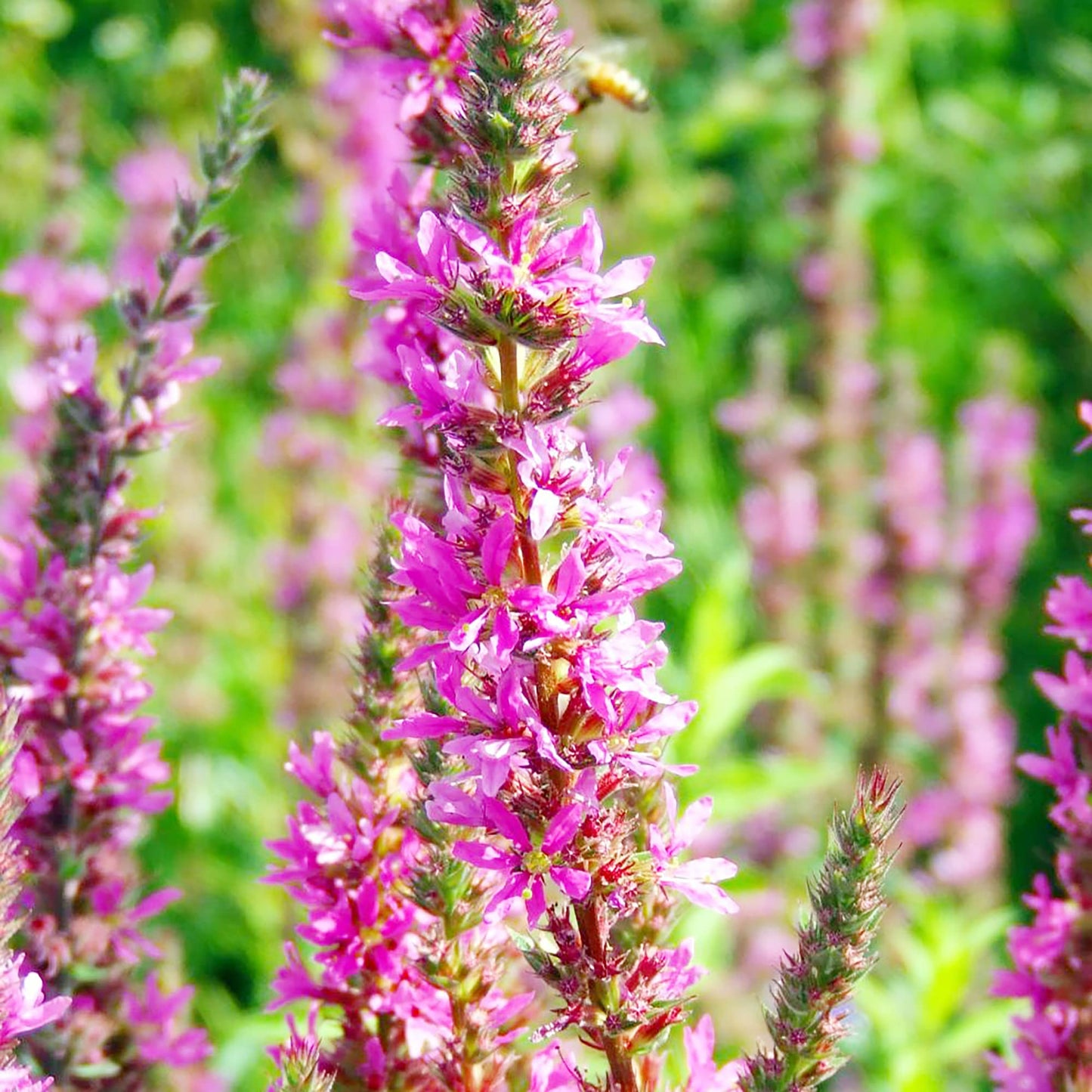Purple Loosestrife Flower Seeds Lythrum salicaria for Pollinator-Friendly Wetland Gardens
Couldn't load pickup availability
Description
Purple Loosestrife Flower Seeds
Characteristics and Uses of Purple Loosestrife Plants
Purple Loosestrife flower seeds produce striking plants known for their tall spikes of vibrant purple flowers that bloom throughout the summer. These flower seeds yield plants that are particularly valued for their ornamental beauty and ability to attract pollinators such as bees and butterflies. The Purple Loosestrife is especially appreciated for its resilience and adaptability, thriving in a variety of soil types and conditions. This variety is perfect for enhancing gardens, borders, and naturalized areas, providing a stunning display of color and attracting beneficial wildlife.
Growing Conditions for Purple Loosestrife Plants
- Light Requirements: Prefers full sun to partial shade, requiring at least 6 hours of direct sunlight daily.
- Soil Type: Thrives in moist, well-draining soil with a pH of 6.0 to 7.5.
- Temperature: Grows best in moderate temperatures, ideally between 60°F to 75°F.
- Humidity: Prefers moderate to high humidity levels, making it suitable for various climates.
Planting Tips for Purple Loosestrife
- Seed Preparation: Soak seeds in water for 2hours before planting to enhance germination.
- Planting Depth: Sow seeds about 1/inch deep in well-prepared soil.
- Spacing: Space plants 12-18 inches apart to allow for proper growth and airflow.
Watering Instructions and Tips
- Watering Frequency: Water regularly, keeping the soil consistently moist but not waterlogged.
- Water Quality: Use room temperature, non-chlorinated water for optimal growth.
- Signs of Overwatering: Yellowing leaves and wilting can indicate excessive moisture.
Growing Zones
Purple Loosestrife plants are suitable for USDA zones 3-9 and can thrive in global zones that offer warm, temperate climates. Their adaptability makes them a great choice for various gardening environments, including home gardens and naturalized areas.
Key Benefits & Uses
- Health Benefits: Purple Loosestrife has been used in traditional herbal medicine for its potential anti-inflammatory properties.
- Culinary Uses: The young leaves and shoots can be used in salads and as a cooked green, adding a unique flavor.
- Aesthetic Appeal: Their tall, colorful spikes add beauty and interest to any garden or landscape.
Best Uses in the Garden & Landscape
- Ornamental Planting: Ideal for creating stunning focal points in flower beds and borders.
- Wildlife Gardens: Attracts bees, butterflies, and other beneficial insects, enhancing biodiversity in the garden.
- Naturalized Areas: Perfect for planting in wetland gardens or along pond edges, providing habitat for wildlife.
Conclusion
In conclusion, Purple Loosestrife flower seeds from bijaseeds offer an exciting opportunity for gardeners to cultivate beautiful and resilient plants that enhance any garden. With their striking appearance and ecological benefits, this variety is a fantastic choice for both novice and experienced gardeners. bijaseeds is a big, trusted name in the seed world, offering a wide range of high-quality, non-GMO varieties to gardeners everywhere.
FAQ
How do I grow Purple Loosestrife seeds?
To grow Purple Loosestrife seeds, soak them in water for 2hours before planting. Sow seeds about 1/inch deep in well-draining soil and provide plenty of sunlight and consistent moisture for optimal growth.
When is the best time to plant Purple Loosestrife seeds?
The best time to plant Purple Loosestrife seeds is in early spring after the last frost, allowing them to establish roots during the warm growing season.
Are Purple Loosestrife plants difficult to grow?
Purple Loosestrife plants are generally easy to grow, making them suitable for gardeners of all levels. With proper care, including adequate sunlight, watering, and soil conditions, they can thrive and provide beautiful blooms throughout the season.



